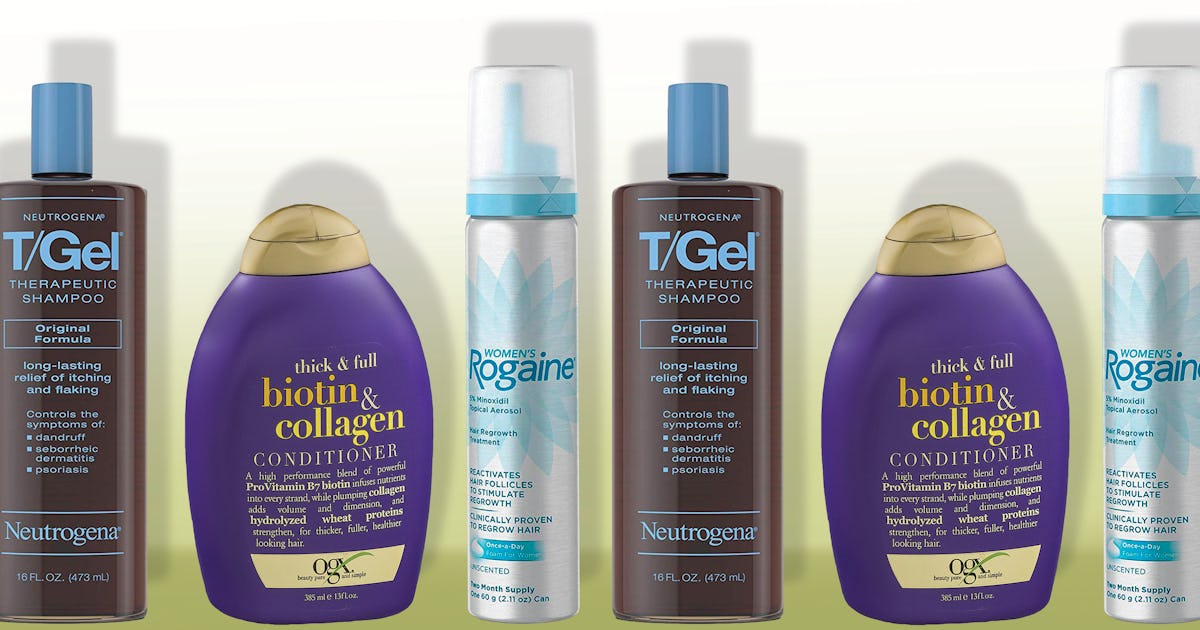
I have extensive experience in the field of hair loss and have researched numerous products to find the best solution. In this article, I will provide you with all the necessary information about choosing the best product for hair loss.
Symptoms of Hair Loss
Identifying Hair Loss Symptoms
When it comes to hair loss, it's essential to be able to identify the symptoms early on. Some common signs of hair loss include a widening part, receding hairline, finding loose hair on your pillow or during showers, noticing bald patches, experiencing clogged drains, and feeling pain or itching on your scalp.
These symptoms may vary depending on the type of hair loss you are experiencing. It is important to pay attention to any changes in your hair and scalp health.
Causes of Hair Loss
Androgenic Alopecia: The Leading Cause
Androgenic alopecia, also known as male or female pattern baldness, is the most common cause of hair loss. It is typically hereditary and can be triggered by hormonal changes and genetics. With androgenic alopecia, the hair follicles become sensitive to dihydrotestosterone (DHT), causing them to shrink over time.
Alopecia Areata: An Autoimmune Condition
Anagen Effluvium: Hair Loss during the Growth Phase
Telogen Effluvium: Hair Loss during the Resting Phase
Tinea Capitis: Fungal Infection
Traction Alopecia: Excessive Pulling or Tension on Hair
Diagnosis of Hair Loss
In order to determine the cause of your hair loss, it is important to undergo a proper diagnosis. A healthcare professional will typically perform a physical examination and inquire about your medical history. In some cases, additional tests such as a biopsy or blood tests may be required to identify any underlying conditions contributing to your hair loss.
Treatment Options for Hair Loss
Topical and Oral Medications
There are various medications available that can help slow down or stop hair loss. Some common topical treatments include minoxidil and finasteride. These medications work by stimulating hair growth and preventing further hair loss.
In addition to topical treatments, oral medications such as finasteride may also be prescribed. These oral medications can help block the conversion of testosterone to DHT, reducing hair follicle damage.
Hair Transplant Surgery
Hair transplant surgery is a more permanent solution for hair loss. It involves extracting healthy hair follicles from a donor area and transplanting them to areas of hair loss. This procedure can provide natural-looking results, but it is important to consult with a qualified surgeon to determine if you are a suitable candidate.
Prevention of Hair Loss
Tips for Preventing Hair Loss
Although not all cases of hair loss can be prevented, there are certain lifestyle changes you can make to promote healthy hair growth and minimize the risk of hair loss. It is important to keep your hairstyles loose, avoid excessive heat or chemical treatments, practice good nutrition by consuming a balanced diet rich in vitamins and minerals, and avoid certain medications or behaviors that can contribute to hair loss.
When to See a Doctor About Hair Loss
If you are experiencing significant hair loss or are concerned about your hair's condition, it is advisable to seek medical attention. A healthcare professional will be able to provide an accurate diagnosis, recommend appropriate treatment options, and offer guidance on how to manage hair loss effectively.
Frequently Asked Questions About Hair Loss
Which vitamin can help with hair loss?
Vitamin D plays a crucial role in hair growth and can help combat hair loss. It is advisable to maintain adequate vitamin D levels through sun exposure or dietary sources such as fatty fish, fortified dairy products, and egg yolks.
What illness causes hair loss?
Various medical conditions can cause hair loss, including thyroid disorders, autoimmune diseases like lupus, nutritional deficiencies, scalp infections, and hormonal imbalances. It is important to consult with a healthcare professional to determine the underlying cause of your hair loss.
Is it possible to stop hair loss indefinitely?
While it may not always be possible to stop hair loss indefinitely, early intervention and appropriate treatment methods can often slow down or halt the progression of hair loss. It is important to seek professional advice and actively manage your hair and scalp health to minimize further hair loss.
Conclusion
Choosing the best product for hair loss can be a daunting task. However, armed with the right knowledge and understanding of your specific condition, you can make an informed decision. Remember to consult with a healthcare professional for an accurate diagnosis and personalized treatment plan. With the right approach, you can effectively address hair loss and regain confidence in your appearance.
Thank you for reading! If you found this article helpful, make sure to explore our other informative articles on hair care and treatment.
Other Articles to Read:
0 Comments